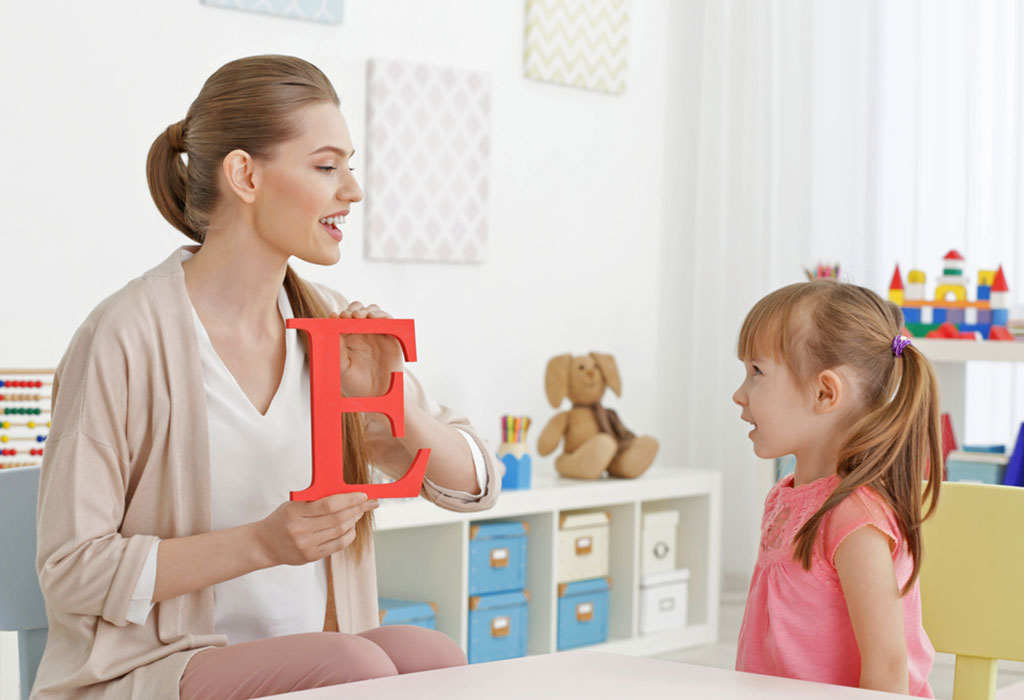As a parent whose child has been diagnosed with Attention Deficit Hyperactivity Disorder (ADHD), can be extremely worrisome feeling. However, there are ADHD treatment options for a child facing the symptoms. In this blog, we will explore different treatment approaches, including therapy, medication, & lifestyle changes, to help you better understand how to support your child’s needs. You will find valuable information on how to effectively manage ADHD in children. Read on to learn more about the treatment options available for your child with ADHD.
Contents
What Is ADHD In Children?
 ADHD (Attention-Deficit/Hyperactivity Disorder) in children is a neurodevelopmental disorder characterized by persistent patterns of inattention, impulsivity, & hyperactivity that significantly impact a child’s daily life functioning. Symptoms typically manifest before the age of 12 and may include difficulty paying attention, being easily distracted, forgetfulness, impulsivity, fidgeting, excessive talking, and difficulty waiting their turn.
ADHD (Attention-Deficit/Hyperactivity Disorder) in children is a neurodevelopmental disorder characterized by persistent patterns of inattention, impulsivity, & hyperactivity that significantly impact a child’s daily life functioning. Symptoms typically manifest before the age of 12 and may include difficulty paying attention, being easily distracted, forgetfulness, impulsivity, fidgeting, excessive talking, and difficulty waiting their turn.
ADHD in children can affect their academic performance, social interactions, & emotional well-being, & may require intervention & support from healthcare professionals, educators, and caregivers.
Therapy Treatment For A Child Facing ADHD
Therapy is an important component of comprehensive treatment for a child with ADHD. Here are some commonly used therapies for children facing ADHD:
Behavioral Therapy
Behavioral therapy focuses on teaching children with ADHD specific strategies to manage their behavior. This may include techniques such as implementing a reward system, where the child earns points or rewards for completing tasks or following rules, & can later redeem those points for privileges or preferred activities. Behavior charts can also be used to track the child’s progress & provide visual reinforcement. Additionally, social skills training can be incorporated into behavioral therapy to help children develop appropriate social behaviors, such as understanding social cues, taking turns, & resolving conflicts.
Parent Training
Parent training programs provide parents with strategies & tools to better understand & manage their child’s behavior at home & in different settings. Parents can learn techniques to establish consistent routines, set clear expectations, and implement effective discipline strategies that are appropriate for managing ADHD-related behaviors. These programs may also provide guidance on how to effectively communicate with their child, provide positive reinforcement, & manage challenging behaviors that may arise in various settings, such as at school or during homework time.
Psychoeducation
 Psychoeducation involves educating the child & their family about ADHD. This can include providing information about the symptoms, causes, & impact of ADHD on daily life functioning. Psychoeducation helps the child & their family understand the challenges associated with ADHD, & may also involve providing strategies and coping skills for managing symptoms. This can help children & their families develop a better understanding of ADHD and learn how to navigate its impact on their lives.
Psychoeducation involves educating the child & their family about ADHD. This can include providing information about the symptoms, causes, & impact of ADHD on daily life functioning. Psychoeducation helps the child & their family understand the challenges associated with ADHD, & may also involve providing strategies and coping skills for managing symptoms. This can help children & their families develop a better understanding of ADHD and learn how to navigate its impact on their lives.
Cognitive-Behavioral Therapy (CBT)
CBT is a type of therapy that helps children identify and change negative thought patterns & behaviors that may contribute to their ADHD symptoms. In CBT, children may work with a therapist to develop self-awareness & learn techniques to recognize & challenge negative thoughts or beliefs that can affect their behavior. They may also learn problem-solving skills to effectively cope with challenges, improve self-esteem, & manage stress and anxiety related to their ADHD. CBT can help children develop healthier coping mechanisms & strategies to manage their symptoms.
Social Skills Training
Children with ADHD may struggle with social interactions due to difficulties with impulse control, attention, and hyperactivity. Social skills training can help them develop appropriate social skills such as listening, sharing, taking turns, and managing emotions. This can involve role-playing, modeling, & practicing social situations with a therapist or in group settings. Social skills training can improve the child’s ability to navigate social situations, establish positive relationships with peers and adults, & reduce social challenges associated with ADHD.
Family Therapy
 Family therapy involves working with the child and their family to improve communication, relationships, & problem-solving skills. In family therapy, families can learn effective strategies for managing ADHD-related behaviors, improving communication patterns, & constructively resolving conflicts. Family therapy can also provide support to parents, helping them develop strategies to cope with the challenges of parenting a child with ADHD and create a positive & supportive environment for the child.
Family therapy involves working with the child and their family to improve communication, relationships, & problem-solving skills. In family therapy, families can learn effective strategies for managing ADHD-related behaviors, improving communication patterns, & constructively resolving conflicts. Family therapy can also provide support to parents, helping them develop strategies to cope with the challenges of parenting a child with ADHD and create a positive & supportive environment for the child.
Medication Treatment For ADHD In Children
Medication is often used as part of the comprehensive treatment options for a child with ADHD. Here are some medications for ADHD in children:
- Stimulant Medications: Stimulant medications are the most common medications for ADHD in children. They work by increasing the levels of certain neurotransmitters in the brain that are responsible for regulating attention, impulse control, and hyperactivity. Examples of stimulant medications include methylphenidate (e.g., Ritalin, Concerta) & amphetamine (e.g., Adderall, Vyvanse).
- Non-Stimulant Medications: Non-stimulant medications are for children who do not tolerate stimulant medications or do not respond well to them. These medications work differently than stimulants & may include atomoxetine (Strattera), guanfacine (Intuniv), & clonidine (Kapvay).
- Combination Medications: Combination medications may help when a child requires multiple types of medications to effectively manage their symptoms. These medications may include a combination of stimulant & non-stimulant medications or different types of stimulant medications with different release mechanisms.
- Medication Management: Regular medication management is an important part of ADHD treatment. This involves close monitoring of the child’s response to the medication, adjusting the dosage or type of medication as needed, & managing any side effects or concerns that may arise.
Remember! It’s important to use medication only under the guidance of a healthcare professional. Some medications can have side effects or may not be appropriate for everyone. Moreover, it is not the first line of treatment for children to take medications, & in some cases, it may be not needed.
The decision to use medication as part of ADHD treatment is per the evaluation of the child’s symptoms, medical history, and individual needs, & in close consultation with the child’s healthcare team & caregivers.
Lifestyle-Changing Tips For Parents
 Here are some lifestyle-changing tips for parents of a child with ADHD that may help support their child’s well-being and manage their symptoms effectively:
Here are some lifestyle-changing tips for parents of a child with ADHD that may help support their child’s well-being and manage their symptoms effectively:
- Establish Consistent Routines: Creating consistent daily routines and schedules can provide structure & predictability for children with ADHD. Consistent bedtimes, meal times, homework times, & other activities can help regulate their daily routine & minimize potential disruptions.
- Create a Calm & Organized Environment: A calm & organized environment can help children with ADHD manage their symptoms. Reduce distractions at home by minimizing noise, clutter, & excessive visual stimuli. Create designated spaces for homework, play, & relaxation.
- Encourage Regular Physical Activity: Regular physical activity can help children with ADHD release excess energy, improve focus, & regulate mood. Encourage your child to engage in physical activities they enjoy, such as outdoor play, sports, or other forms of exercise.
- Promote Healthy Sleep Habits: Adequate sleep is crucial for children with ADHD. Establish a consistent bedtime routine, & ensure a quiet & comfortable sleep environment. Additionally, you can limit screen time before bedtime to promote quality sleep.
- Support a Healthy Diet: A healthy diet can support the overall well-being of children with ADHD. Encourage a balanced diet with adequate nutrients, & limit sugary & processed foods. Ensure regular meals & snacks throughout the day to help regulate blood sugar levels.
- Collaborate with School & Healthcare Professionals: Collaborate with your child’s school & healthcare professionals. This can ensure consistent strategies are in place to support your child’s needs at home & in the school environment. Regular communication & teamwork can help optimize your child’s overall care & support.
Conclusion
In conclusion, there are various treatment options for children with ADHD, including therapy, medication, and lifestyle changes. ADHD treatment options for a child include a comprehensive approach combining different interventions that meet the child’s needs. It’s important to work closely with healthcare professionals, including pediatricians, child psychiatrists, therapists, and educators, to develop a personalized treatment plan for your child. If your child shows signs of ADHD, seek help from qualified healthcare providers for proper evaluation & guidance.
For more information, please contact MantraCare. ADHD is a neurodevelopmental disorder involving difficulty paying attention, hyperactivity, and impulsivity. If you have any queries regarding Online ADHD Counseling experienced therapists at MantraCare can help: Book a trial ADHD therapy session.


